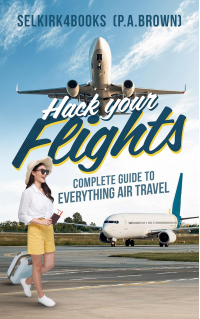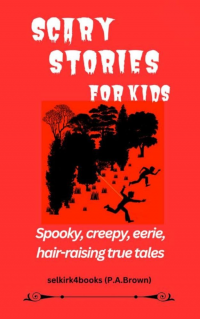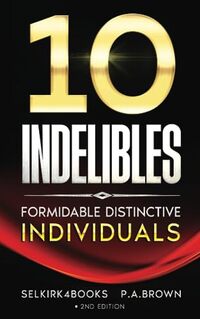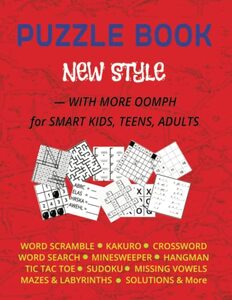Can you tell us a bit about yourself and how your passion for travel, ancient stonework, and the unexplained developed from a young age?
I was born near Huddersfield, Yorkshire, England and lived on a street of houses close to a castle on a hill. My family house was one of the closest to the castle and I saw it everyday. As a youngster I was curious about this tall tower and why no-one lived in it. This was the beginning of my interest in ancient stonework. As a late-teen I visited a village in Yorkshire called Wycoller. There is a large ruined mansion there that Charlotte Bronte often visited on walks and is believed to be 'Ferndean Manor' in her novel "Jane Eyre". The ruins show what a magnificent stone structure it used to be, with imposing stonework including a wonderful inglenook fireplace. The lure of unexplained methods of assembling large stonework has been my motivation for travel ever since.
What motivated you to transition from being an enthusiast to an author, particularly in the non-fiction genre?
In all the years I have travelled, I have made copious notes, in old school-type exercise books. A few years ago I realised I should either make use of them by becoming an author, or accept that one day they would be disposed of after my time is up, maybe as 'old paperwork' that was no longer thought of as useful. Why non-fiction? Because truth is certainly stranger than fiction and, for me, far more interesting through being real.
Your books cover a range of topics, including travel, ancient stonework, and the unexplained. How did you decide on these themes, and what connects them in your mind?
The simple answer is that ancient stonework and unexplained curiosities are everywhere in the world and to see them with one's own eyes requires much travel!
Could you share insights into your research process when delving into topics like ancient stonework and the unexplained? Any memorable or challenging moments?
I began research into ancient stonework, including historically recorded lost treasures (2 in particular) long before the internet was invented. Research before the internet was limited to visiting libraries, talking to people who had first hand knowledge (sometimes involving travel), and writing to universities around the world trying to glean more information on a chosen topic. An example of a challenging moment was travelling to Lord Howe Island off the east coast of Australia. Briefly, a ship sank close to the far side of the two adjacent mountains. Some sailors managed to reach the very difficult coastline with the valuables in a small rowboat, and hid it among the huge boulders that completely edge this part of the coastline from one of the steep mountains. The challenging moment was rounding the small peninsular and being confronted by rocks and boulders far bigger than anticipated, and even having to jump a few metres from the pitching small boat, just to reach land. A more confronting moment was on another faraway island with a still-unrecovered treasure, whose name I can't disclose because I intend returning and metal detectors are banned. Need I say more?
”Hack Your Flights. Complete Guide to Everything Air Travel" sounds like an essential resource for frequent travelers. What inspired you to write this book, and what do you hope readers will gain from it?
I hope travellers will read this book because so many people who fly have no idea of how they can save a lot of money firstly, but also arrange features of their travel they likely didn't realise were there for the taking. I will disclose here a golden rule of travel: Never go to a flight centre in person or book online directly with an airline if you want to save a lot of money. My book spells out the ways to do this and it is far more convenient and easy than you'd think.
Your longest single flight lasted 51 hours, which sounds like quite the journey! What lessons did you learn from that experience, and how did it influence your perspective on air travel?
Yes, that journey is forever imprinted on my mind! It was so long and tiring with an additional annoyance at the last change of plane in Rio, Brasil. I had to collect my luggage to change airlines for the final leg to Buenos Aires. As I carried and pulled my baggage I noticed my trouser leg was strangely wet. I noticed liquid dripping from the largest of the two I was carrying. I wasn't carrying any liquids so I took it to the baggage claims area and complained. It took a while but they established that the suitcase above mine while in transit was losing the contents of a broken large bottle of liqueur. That journey's experiences spurred me to work on the principle that there is always a better way — hence my book "Hack Your Flights”.
”10 INDELIBLES" seems to delve into the strange and unexplained aspects of life. What motivated you to write about these unusual occurrences?
Some of those occurrences happened while living on the Isle of Skye, Scotland, with my young family. It was hard not to think about them and so I kept notes and photographs over all the years since, with newer experiences to add to those earlier ones, until I became an author.
What is your typical writing process like? Do you have any specific routines or rituals that help you stay focused and creative?
My writing process is completely directed by a part of my makeup that has always been with me. If I start something, I work on it all hours until finished. It is not popular with my wife and friends because my writing takes precedence. The only good thing about this is getting so much more done. House maintenance and even building-on are soon done and appreciated!
What kind of feedback have you received from readers of "10 INDELIBLES," and how has it shaped your understanding of the topics you explore in the book?
I have received 12x 5 Star reviews so far that act as very good feedback about my writing style and the unusual happenings I’ve experienced. One reviewer, Oliver K, said, quote, “If you're looking for something that's a little different, easy to read, interesting and inspirational, then look no further than Brown's 10 Indelibles”. This comment is one of a few that have pleased me to think readers not only enjoyed the subject matter but gave them pause for thought about the quirks of people’s skills and powers.
Writing non-fiction involves presenting facts while maintaining reader engagement. What challenges have you faced in balancing information and storytelling?
This was the best question for me! Interestingly or not, I write about things in the way they catch my attention and I feel as if I am more a reporter than a story-teller.
Are there any specific topics within your areas of interest that you haven't explored yet but would like to in future works?
Oh yes! I have a fascination with medical matters that started around the age of 11 or 12 that has had me reading medical books, articles and reports ever since. I have finally reached a point where I intend voicing a strong opinion about questionable practices in medicine.
In your opinion, what role do books like "10 INDELIBLES" play in expanding our understanding of the world and our place within it.
A major role, I think, alongside documentaries about interesting, unusual and unexplained aspects of this unusual world.
When writing about topics you're deeply passionate about, how do you maintain objectivity and ensure your work remains accessible to a broad audience?
I’m afraid I haven’t thought about that. The objectivity part is easy because all I’m doing is relating and reporting the details I am fascinated by. If my writing is accessible to a broad audience, I would have to put that down to luck! I do, however, think about how I write the finer details and try to imagine how a reader would see it, and therefore make changes to the way I’m saying things.
Can you provide a sneak peek into any upcoming projects or areas of research you're excited to explore in your future works?
Already mentioned is a medical-centred book. I also have a what I consider to be an unusual travel book, though have been intimidated by some excellent travel YouTube work on the same subject.
What has your AllAuthor experience been like so far? What are some highlights?
I like AllAuthor’s set-up. They have very useful-to-authors features like weekly mockup banners with a wide choice; book tweet schedule, writing and marketing tips among many others. Highlights for me have been regular mockup banners and the reminders when one forgets things that should have been done.








